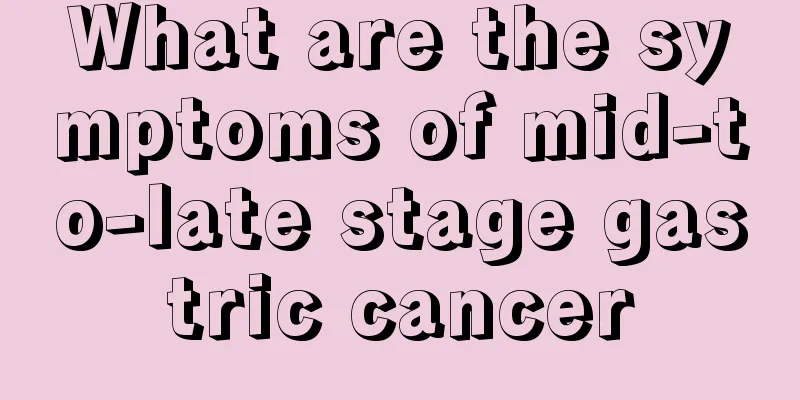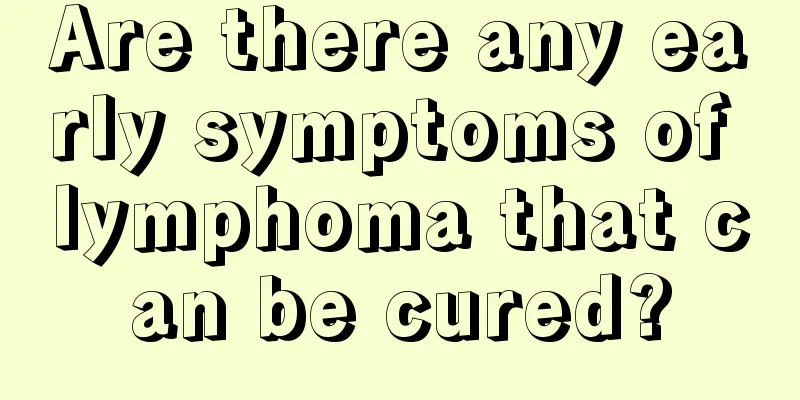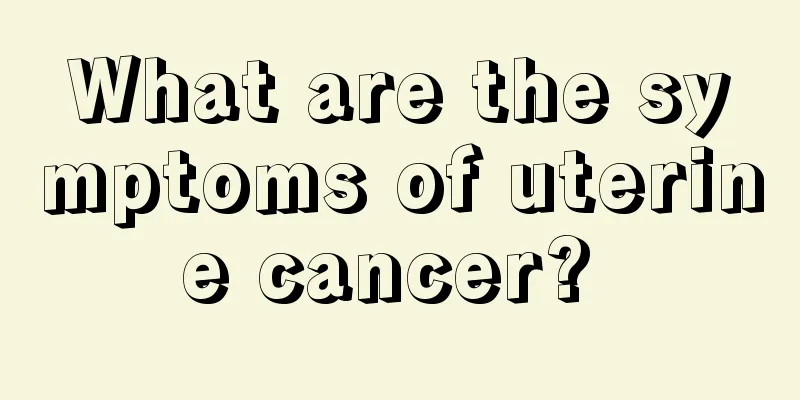What are the symptoms of mid-to-late stage gastric cancer

|
What are the symptoms of mid-to-late stage gastric cancer? Under normal circumstances, mid-stage gastric cancer may have symptoms such as weight loss, vomiting, abdominal pain, etc., and late-stage gastric cancer may have symptoms such as vomiting blood, black stools, and difficulty swallowing. Patients are advised to actively seek treatment. 1. Symptoms of mid-stage gastric cancer 1. Weight loss: At this time, the patient's gastric function is usually weakened, the digestion and absorption of food will be hindered, and the patient may not be able to absorb enough nutrients, leading to weight loss. 2. Vomiting: After cancer cells damage the digestive tract, the patient may have indigestion, which may be accompanied by vomiting and bad breath. 3. Abdominal pain: Local mucosal tissue may be necrotic after damage, causing abdominal pain, which may manifest as dull pain, hidden pain, sharp pain and other discomforts. Symptoms of Advanced Gastric Cancer 1. Vomiting blood: When gastric cancer enters the late stage, the damage to the digestive tract worsens, which can cause vomiting blood, which usually manifests as a jet-like state and the attack can be paroxysmal. 2. Black stools: When local mucosal necrosis increases, patients are prone to black stools, which may also contain mucus. 3. Difficulty in swallowing: When cancer cells spread further, they may compress the esophagus and cause difficulty in swallowing. At this time, the secretion of gastric acid may increase significantly, which can easily damage the gastric mucosa. In addition to the relatively common symptoms mentioned above, there are other possible symptoms, such as patients with mid-stage gastric cancer may have symptoms such as acid reflux, anorexia, anemia, etc., and patients with advanced gastric cancer may have symptoms such as heartburn, radiating pain in the back, and difficulty eating. It is recommended that patients actively seek medical treatment and follow the doctor's advice to treat with total gastrectomy and partial gastrectomy. |
<<: Is nasopharyngeal cancer contagious? What causes it?
>>: What to do if the mouth becomes crooked after treatment of nasopharyngeal cancer
Recommend
Wash your face with aspirin and facial cleanser
For some patients with cardiovascular and cerebro...
Is toe deformity hereditary?
In life, many people have toe deformities. There ...
How to use bleaching powder
Bleach is a disinfectant, especially often used t...
Does nasal endoscopy hurt?
People breathe through their noses and mouths, an...
Can I drink water after exercising to lose weight?
When we finish strenuous exercise, we will feel p...
What are the exercises for colon cancer
Exercise Guide for Colorectal Cancer: During trea...
Can putting garlic in the anus cure hemorrhoids?
There are all kinds of folk remedies in life. I h...
Does smoking cause lung cancer
Does smoking cause lung cancer? For middle-aged a...
Six signs of laryngeal cancer recurrence
Symptoms of laryngeal cancer recurrence generally...
What teas can nourish and protect the liver?
The health of the liver will be directly reflecte...
Which is more serious, rheumatism or rheumatoid arthritis
Although rheumatism and rheumatoid arthritis only...
What should six-month-old babies supplement?
All babies are already starting to eat complement...
Central disc herniation
When it comes to the disease of intervertebral di...
What are the dangers of bladder cancer
What are the hazards of bladder cancer? Will blad...
What are the daily methods to prevent prostate cancer
Prostate cancer is a disease that many people are...









